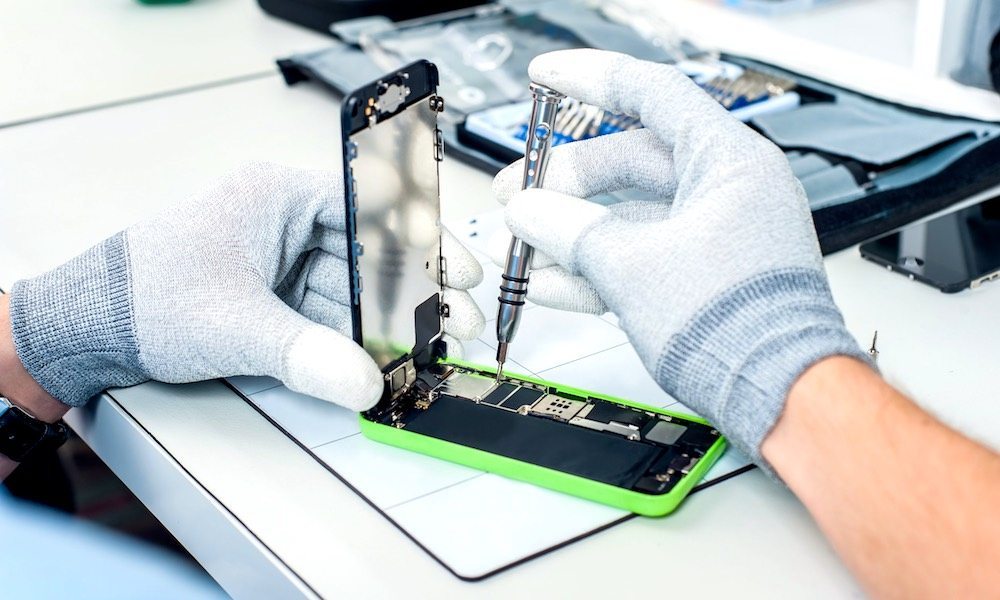Lawyers Say Apple’s Independent Repair Program Contract Is ‘Crazy,’ ‘Onerous’
 Credit: Vlad Teodor / Shutterstock
Credit: Vlad Teodor / Shutterstock
Toggle Dark Mode
The contract that small repair businesses need to sign to be a part of Apple’s Independent Repair Provider (IRP) program is being called “crazy” and “onerous” by some lawyers, a new report claims.
Last year, Apple launched the IRP program, a move widely lauded as a step toward more repairable devices. Essentially, the program allowed independent repair shops and technicians access to genuine parts, tools and services for the first time.
Since the launch of that program, Apple has been relatively silent about it, however. But despite not offering any additional details to the public, Motherboard recently obtained a copy of the IRP contract, which hasn’t yet been seen by the public.
Now, the Cupertino tech giant is getting flack for certain terms within the contract that lawyers and right-to-repair advocates are calling “crazy,” as well as concerns about data privacy.
‘Crazy’ Terms & Conditions
For one, Motherboard reports that the contract stipulates repair technicians may be subject to “unannounced audits and inspections by Apple.”
The goal? Apparently to “search for and identify the use of ‘prohibited’ repair parts,” a move that the contract says Apple can impose fines for.
And if independent repair shops leave the program, the contract actually includes a term that gives Apple the right to “continue inspecting repair shops for up to five years” after it ends.
Shops that are a part of the program also can’t advertise that they are Apple Authorized Service Providers and “must obtain ‘express written acknowledgment’ from customers showing they understand they are not receiving repairs from an authorized service provider.”
But while they can’t claim to be authorized service providers, any repair company that signs up for the program must have every one of its staff members complete Apple’s certified technician training.
IRP members are also barred from using counterfeit products or service parts, as well as any parts that may “infringe on Apple’s intellectual property,” two terms that drew concern because of their subjectivity and vagueness.
What This Means for Users
Getting an Apple device repaired at an Apple Store or AASP is fairly easy. But beyond those options, Apple device owners have few choices when it comes to repairing devices themselves or at an independent shop.
Largely, that’s because Apple products are infamously hard to repair. But the company has also taken steps to block right-to-repair initiatives across the U.S. that may make it easier for users to fix their devices themselves.
While the IRP was largely seen as a small step in the right direction, the restrictive terms and conditions of the program may scare most independent repair shops off.
That has a few major impacts on users. For one, they’ll have fewer choices when it comes to safe and genuine repairs. And if they do opt for a third-party repair shop, they may not be getting safe or quality service.
As you might expect, many repair shops said they’d never join Apple’s IRP. But there were others that told Motherboard that they would because they valued the chance to get genuine parts and training.
Consumers should value that, too. And for a company as positions itself as pro-consumers, it should take steps to make it easier for both technicians and users.






